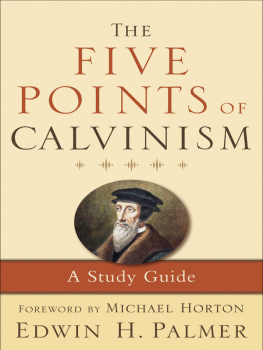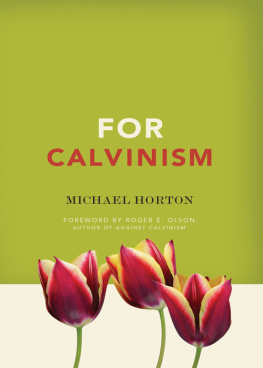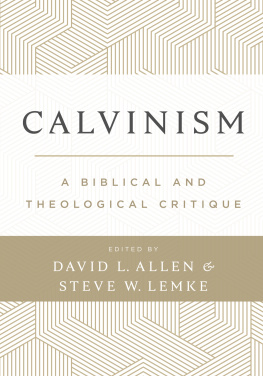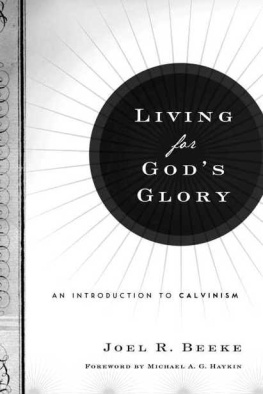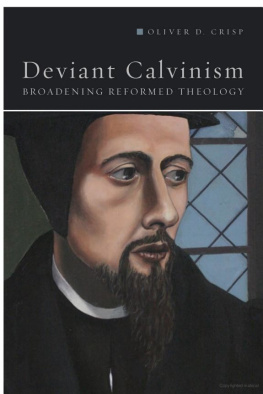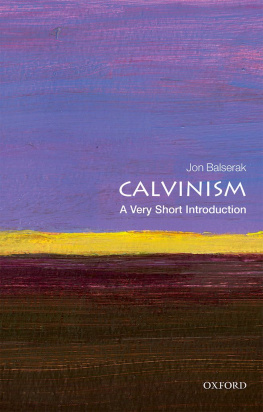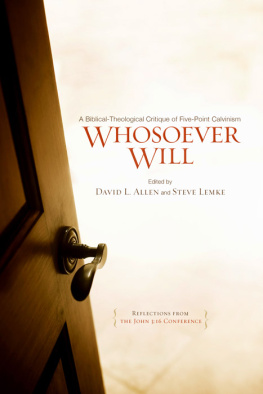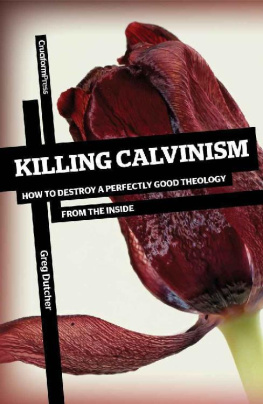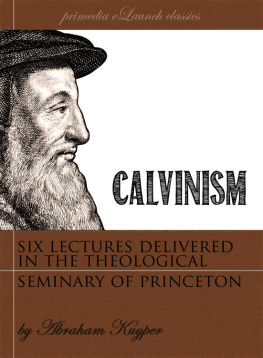Josh Buice - The New Calvinism: New Reformation or Theological Fad?
Here you can read online Josh Buice - The New Calvinism: New Reformation or Theological Fad? full text of the book (entire story) in english for free. Download pdf and epub, get meaning, cover and reviews about this ebook. year: 0, genre: Religion. Description of the work, (preface) as well as reviews are available. Best literature library LitArk.com created for fans of good reading and offers a wide selection of genres:
Romance novel
Science fiction
Adventure
Detective
Science
History
Home and family
Prose
Art
Politics
Computer
Non-fiction
Religion
Business
Children
Humor
Choose a favorite category and find really read worthwhile books. Enjoy immersion in the world of imagination, feel the emotions of the characters or learn something new for yourself, make an fascinating discovery.
- Book:The New Calvinism: New Reformation or Theological Fad?
- Author:
- Genre:
- Year:0
- Rating:4 / 5
- Favourites:Add to favourites
- Your mark:
- 80
- 1
- 2
- 3
- 4
- 5
The New Calvinism: New Reformation or Theological Fad?: summary, description and annotation
We offer to read an annotation, description, summary or preface (depends on what the author of the book "The New Calvinism: New Reformation or Theological Fad?" wrote himself). If you haven't found the necessary information about the book — write in the comments, we will try to find it.
Josh Buice: author's other books
Who wrote The New Calvinism: New Reformation or Theological Fad?? Find out the surname, the name of the author of the book and a list of all author's works by series.
The New Calvinism: New Reformation or Theological Fad? — read online for free the complete book (whole text) full work
Below is the text of the book, divided by pages. System saving the place of the last page read, allows you to conveniently read the book "The New Calvinism: New Reformation or Theological Fad?" online for free, without having to search again every time where you left off. Put a bookmark, and you can go to the page where you finished reading at any time.
Font size:
Interval:
Bookmark:
New Calvinism is an outstanding collection of essays addressing the phenomenon of a movement that has had a prevailing influence over evangelicalism in the last few decades. This book celebrates the achievements of that movement; recognizes the ways that it has sought to honor the whole counsel of God; while also recognizing the points at which it has compromised with the spirit of the age. It restates the essential elements of the Reformed faith and examines the ways in which those should be recovered and reapplied to the lives of Gods people today. It is essential reading.
Liam Goligher
Senior Minister, Tenth Presbyterian Church, Philadelphia
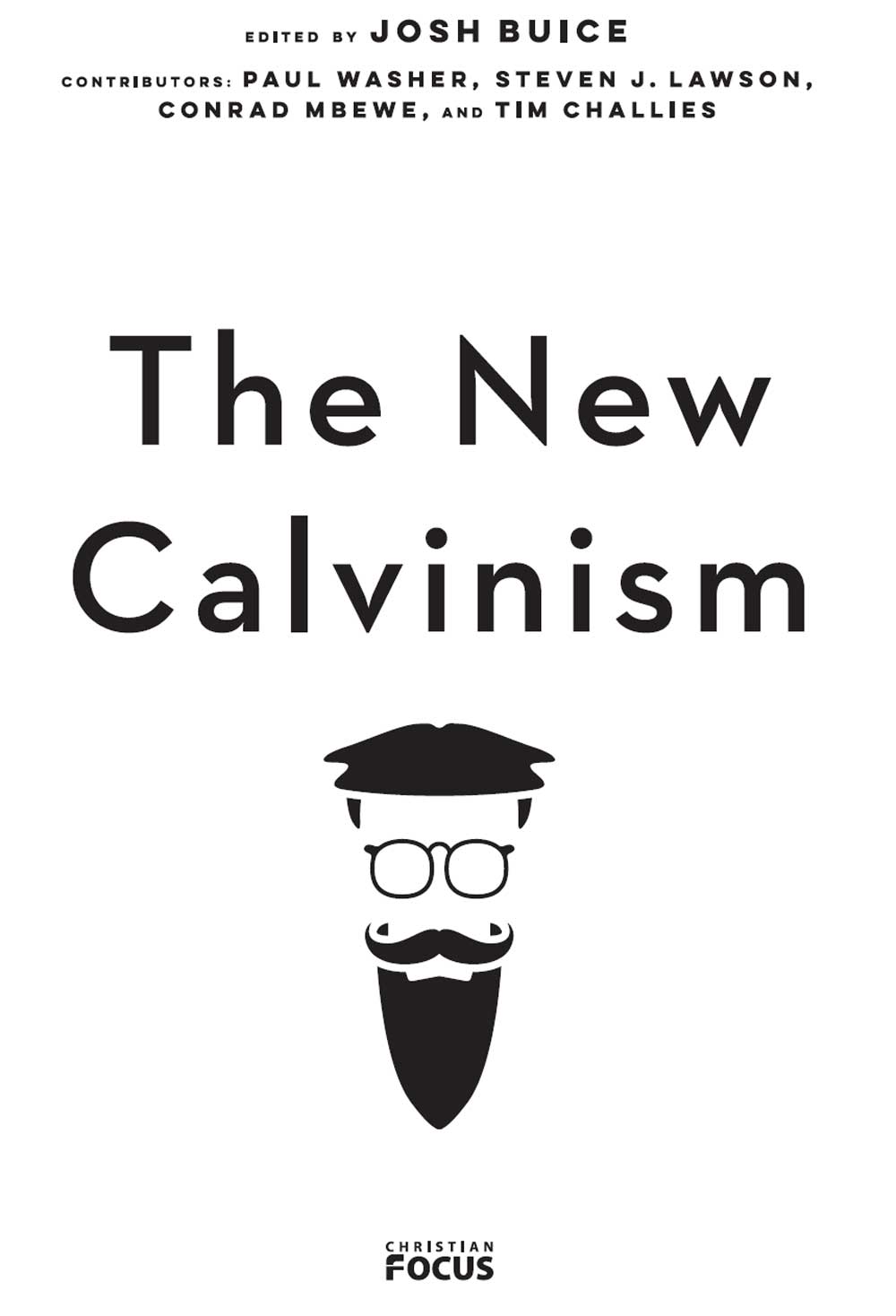
Scripture quotations marked ESV are taken from The Holy Bible, English Standard Version, copyright 2001 by Crossway Bibles, a division of Good News Publishers. Used by permission. All rights reserved.
Scripture quotations marked NASB are taken from the New American Standard Bible, Copyright 1960, 1962, 1963, 1968, 1971, 1972, 1973, 1975, 1977, 1995 by The Lockman Foundation Used by Permission. (www.Lockman.org)
Scripture quotations marked NIV are taken from The Holy Bible, New International Version, NIV Copyright 1973, 1978, 1984, 2011 by Biblica, Inc. Used by permission. All rights reserved worldwide.
Copyright Josh Buice 2017
paperbackISBN 978-1-5271-0090-9
epubISBN978-1-5271-0135-7
mobiISBN978-1-5271-0136-4
Published in 2017
by
Christian Focus Publications Ltd,
Geanies House, Fearn, Ross-shire,
IV20 1TW, Great Britain.
www.christianfocus.com
Cover design by
Kent Jenson
eBook production
by Oxford eBooks Ltd.
www.oxford-ebooks.com
All rights reserved. No part of this publication may be reproduced, stored in a retrieval system, or transmitted, in any form, by any means, electronic, mechanical, photocopying, recording or otherwise without the prior permission of the publisher or a licence permitting restricted copying. In the U.K. such licences are issued by the Copyright Licensing Agency, Saffron House, 6-10 Kirby Street, London, EC1 8TS.www.cla.co.uk
New Reformation or
Theological Fad?

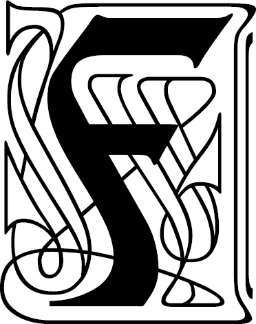
ive centuries ago, Martin Luther nailed his Ninety-Five Theses to the door of the Castle Church in Wittenberg. That single act sparked the Protestant Reformation. Today, the Reformation is not over. The Reformers were protesting against corrupt ideas, false doctrines, and false worship and those same challenges remain prevalent in our present day and will continue to plague the church of Jesus Christ until our Savior returns.
In recent years, there has been a surge of interest in the doctrines of grace, the Protestant Reformers, and sound biblical theology. In many ways this movement, known by the name New Calvinism, is populated by a vast number of younger evangelicals. While we can certainly celebrate a resurgence of sound biblical doctrine in an era that is permeated with shallow pragmatism and spiritual lethargy, we should likewise be concerned by certain deficient methods. One honest question would be, does old Calvinism need to be altered into a movement known as New Calvinism?
What is the New Calvinism?
At the heart of the historic Reformation was a true insatiable appetite for Gods Word that could not be squelched by fear or flames. Luther made his famous Here I stand response to Rome. Calvin was banished from his pulpit, but when he returned he picked up in the very next verse where he left off. William Tyndale was willing to die at the stake in order to translate and print the English Bible for the common people. These men had an unshakable confidence in the God of the Word, therefore, they labored diligently in the Word of God.
In many ways, the modern resurgence of Calvinism is similar. Todays pastors, in many cases, grew up beneath the cloud or in the wake of controversy in the evangelical world over biblical inerrancy. As a result, their commitment to the Word of God has brought them face-to-face with the doctrines of grace. If the Bible is inerrant and trustworthy, it must be trusted in all verses including John 3:16 and the first two chapters of Ephesians.
In an age of shallow relativism, church marketing pragmatism, and the deep ditches of legalism, a group of people have emerged from the shadows in recent years within the evangelical church who are hungry for God. This group has now been documented as a movement and labeled most recently as the New Calvinism. At the heart of New Calvinism is a profound hunger for a God who can address the issues of this fallen world. As this movement looks at the brokenness of drugs, poverty, divorce, and life shattering sins, they see a need for God, and not just a generic god, but specifically the robust sovereign God and ruler of the universe.
In 2008, Collin Hansen went on a journey to document this resurgence. He penned a book titled, Young, Restless, Reformed: A Journalists Journey with the New Calvinists. It caught the attention of many people in the evangelical world and became a focal point as people were trying to assess this new uptick of Calvinistic soteriology. Hansen writes:
For nearly two years, I traveled across the country and talked with the leading pastors and theologians of the growing Reformed movement. I sat in John Pipers den, Al Mohlers office, C. J. Mahaneys church, and Jonathan Edwardss college. But the backbone of the Reformed resurgence comprises ordinary churches like those I saw in South Dakota churches used by God to do extraordinary things. Armed with Gods Word and transformed by the Holy Spirit, these churches leaders faithfully proclaim the gospel of Jesus Christ week after week, through tragedy and triumph. Culture has conspired to give their message a wider audience. Desire for transcendence and tradition among young evangelicals has contributed to a Reformed resurgence.
In the following year, TIME Magazine ran a series of articles under the banner, 10 Ideas Changing the World Right Now. Claiming the third spot in this list was The New Calvinism. David Van Biema, in his article, stated the following:
Calvinism is back, and not just musically. John Calvins 16th century reply to medieval Catholicisms buy-your-way-out-of-purgatory excesses is Evangelicalisms latest success story, complete with an utterly sovereign and micromanaging deity, sinful and puny humanity, and the combinations logical consequence, predestination: the belief that before times dawn, God decided whom he would save (or not), unaffected by any subsequent human action or decision.
In the United States, it is not entirely uncommon to walk into a coffee shop and see a young bearded man wearing a T-shirt with a picture of Charles Spurgeon in the center of his chest. There seems to be a growing population of younger people who have a love for God and a profound desire to study the Word and think through the deep theological components of the faith. Certainly the numbers indicate that a hunger for sound biblical truth among a certain population within the evangelical world in happening, and it has been building now for a number of years.
A love for theology is not uncommon among young impressionable college students. Although many youthful people populate the New Calvinism, this movement is not reserved for the college campus. Likewise, people in their fifties and sixties are buying reprints in the form of eBooks by Martin Luther and John Calvin on their Kindle and iPad devices. What exactly is happening in the evangelical world? What is New Calvinism? Although difficult to properly define, its important for us to develop a working definition in order to have a point of reference as we move along through this book.
Next pageFont size:
Interval:
Bookmark:
Similar books «The New Calvinism: New Reformation or Theological Fad?»
Look at similar books to The New Calvinism: New Reformation or Theological Fad?. We have selected literature similar in name and meaning in the hope of providing readers with more options to find new, interesting, not yet read works.
Discussion, reviews of the book The New Calvinism: New Reformation or Theological Fad? and just readers' own opinions. Leave your comments, write what you think about the work, its meaning or the main characters. Specify what exactly you liked and what you didn't like, and why you think so.


